High-Stakes Trade Talks: Trump and Von der Leyen to Meet Amid Tariff Threats

European Commission President Ursula von der Leyen is scheduled to meet with Donald Trump in Scotland on Sunday, July 27, 2025, for urgent discussions on transatlantic trade relations. The meeting occurs against the backdrop of an impending August 1 deadline for the U.S. to impose significant tariffs on EU goods, creating a tense atmosphere for negotiations.
Trump Estimates "50-50 Chance" of Trade Deal
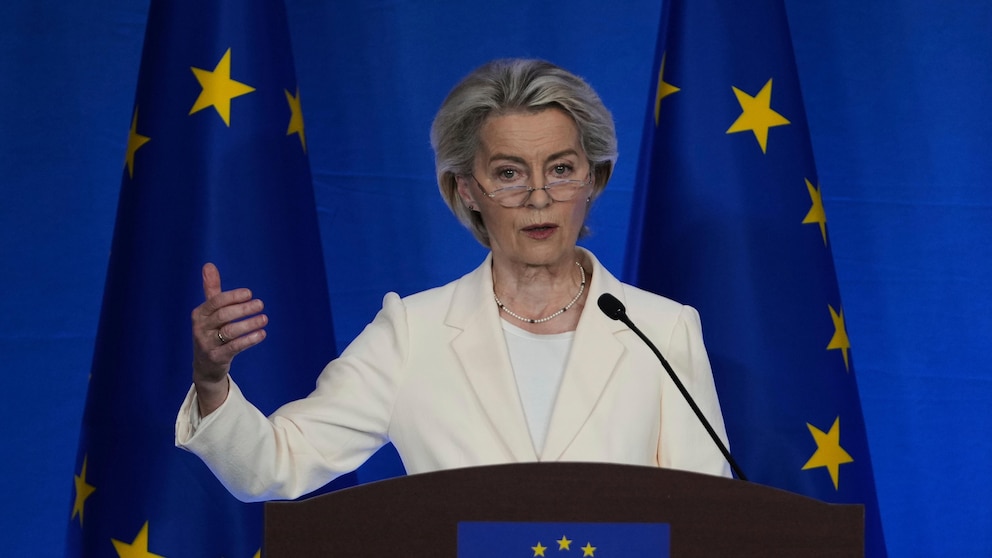
President Trump has publicly downplayed the likelihood of a successful outcome, stating there's a "50-50 chance, maybe less than that" of reaching a trade deal with the EU. This pessimistic outlook underscores the challenges both sides face in bridging their differences.
Compromise on the Horizon: Potential 15% Tariff

Despite Trump's statements, EU diplomats have indicated that a compromise might be within reach. Discussions center around a potential baseline U.S. tariff of 15% on EU goods. While this is a reduction from Trump's earlier threat of 30% tariffs, it remains higher than the EU's initial goal of zero tariffs on industrial goods.
EU Prepares Retaliatory Measures Worth €93 Billion
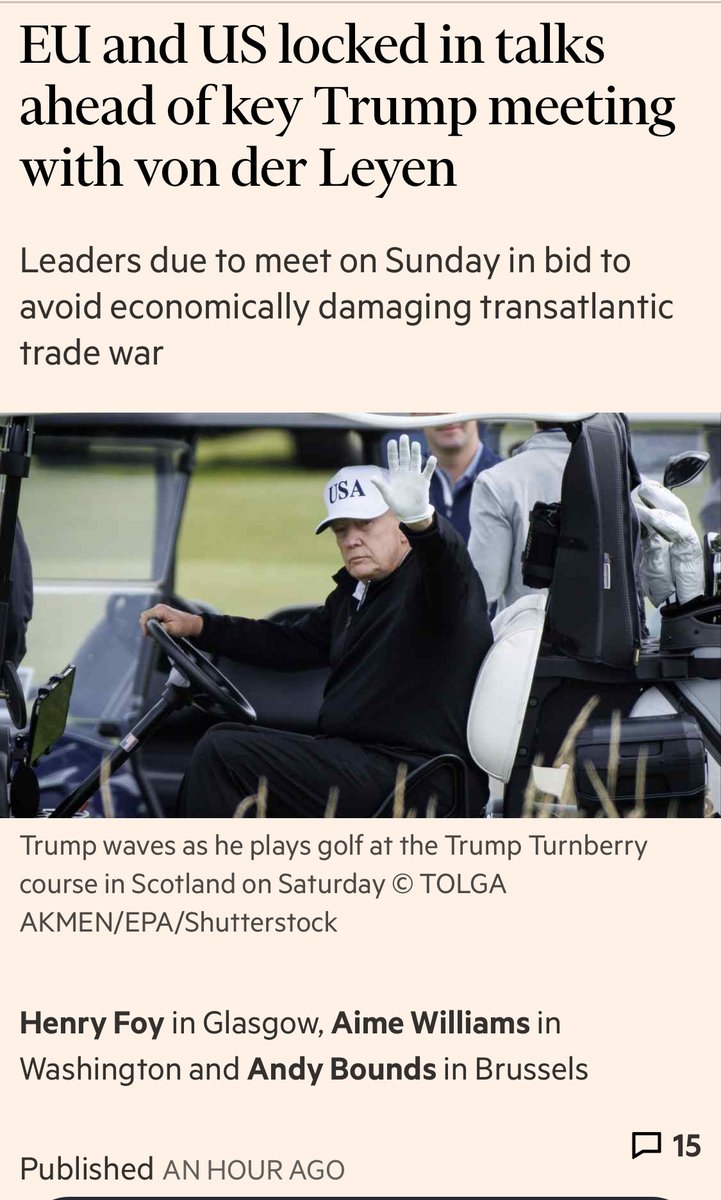
In response to the potential U.S. tariffs, the EU has approved a retaliatory package valued at €93 billion ($109 billion) in tariffs on U.S. goods. This package is slated to take effect on August 7 if no agreement is reached and encompasses a wide range of products, from beef and auto parts to beer and Boeing airplanes.
Negotiations Faced Setbacks Earlier in July

Negotiations in early July had reportedly brought the EU and the U.S. close to an agreement on a 10% baseline tariff. However, Trump subsequently escalated the situation by threatening 30% tariffs, adding complexity to the ongoing discussions.
Trump's Broader Tariff Policy and Recent Trade Deals
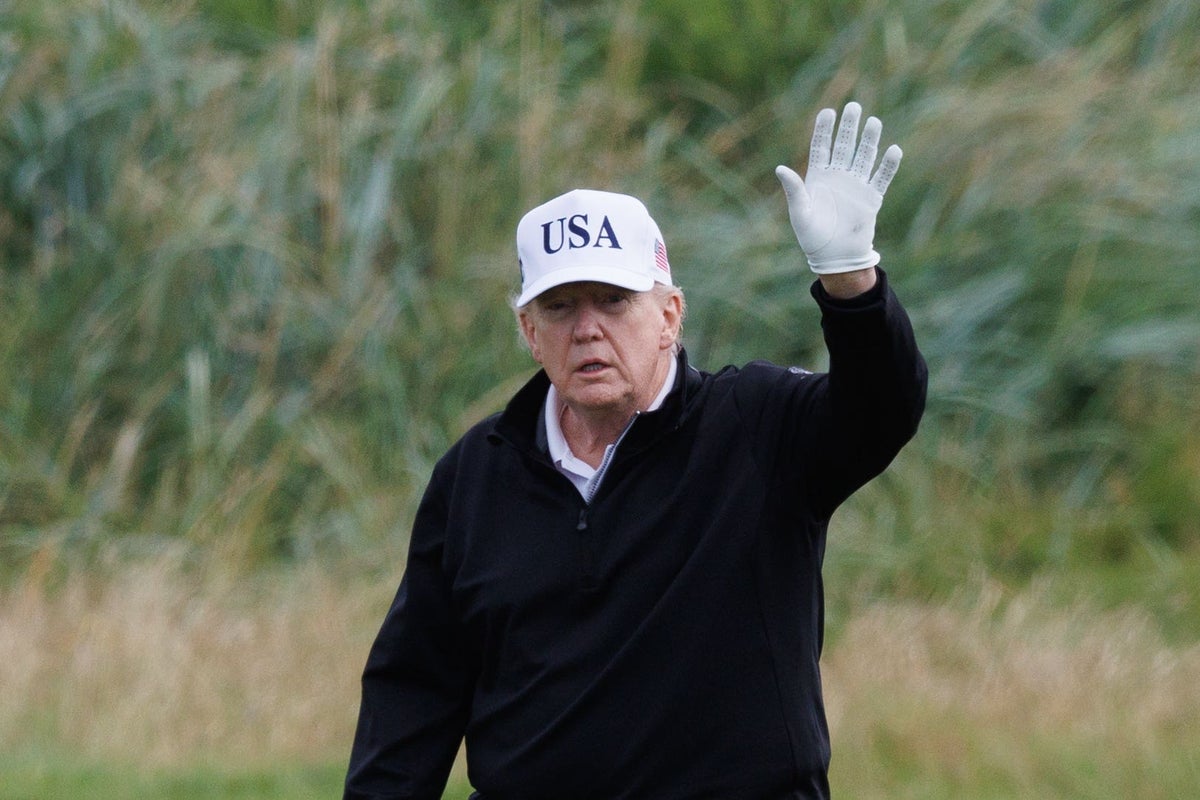
Trump's tariff policies extend beyond the EU, as he announced tariffs on 60 trading partners in April, with rates reaching up to 50%. Recently, the U.S. has finalized trade deals with the UK and Japan, with the latter also including a 15% tariff.
Trump's Pre-Meeting Criticism of EU Policies
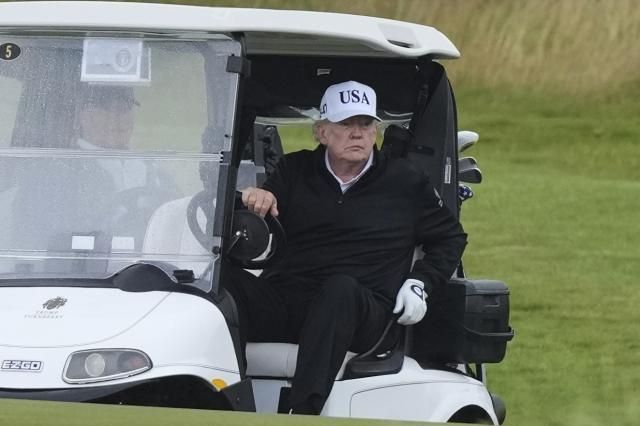
Ahead of the pivotal meeting with von der Leyen, Trump has voiced criticism of Europe's migration policies and renewable energy initiatives, particularly targeting wind energy projects.
Key Dates Looming: July 27, August 1, and August 7

The meeting between Ursula von der Leyen and Donald Trump on Sunday, July 27, 2025, in Scotland is a critical event. August 1, 2025, marks Trump's deadline for imposing higher tariffs on EU exports if a trade agreement is not achieved. Following closely is August 7, 2025, the date by which the EU's retaliatory tariffs of €93 billion are set to be implemented if talks fail.
EU and U.S.: A Major Trade Relationship at Stake

The EU and the U.S. share the world's largest bilateral trade and investment relationship, representing approximately 30% of global trade. Total goods and services trade between the two powers reached $1.4 trillion in 2023. The outcome of these negotiations will have far-reaching implications for this crucial economic partnership.
Key Stakeholders in the Trade Negotiations

Several key stakeholders are involved in the trade negotiations. Donald Trump, driven by his "America First" trade agenda, aims to reduce U.S. trade deficits through tariffs and new agreements. Ursula von der Leyen leads the EU's negotiation efforts, seeking to protect European businesses and maintain a stable transatlantic trade relationship. The European Commission acts as the negotiating body for the EU's 27 member states. The U.S. Trade Representative (USTR) Jamieson Greer and Commerce Secretary Howard Lutnick reportedly traveled to Scotland for talks with EU Trade Commissioner Maros Sefcovic prior to the leadership meeting.
Businesses and Consumers Face Uncertainty

Businesses and industries, particularly those involved in exports and imports such as pharmaceuticals, automobiles, steel, aluminum, agriculture, and services, face significant uncertainty and potential economic consequences. Consumers in both the EU and the U.S. could experience increased prices for imported goods, contributing to inflation.
Risk of Trade War and Broader Consequences
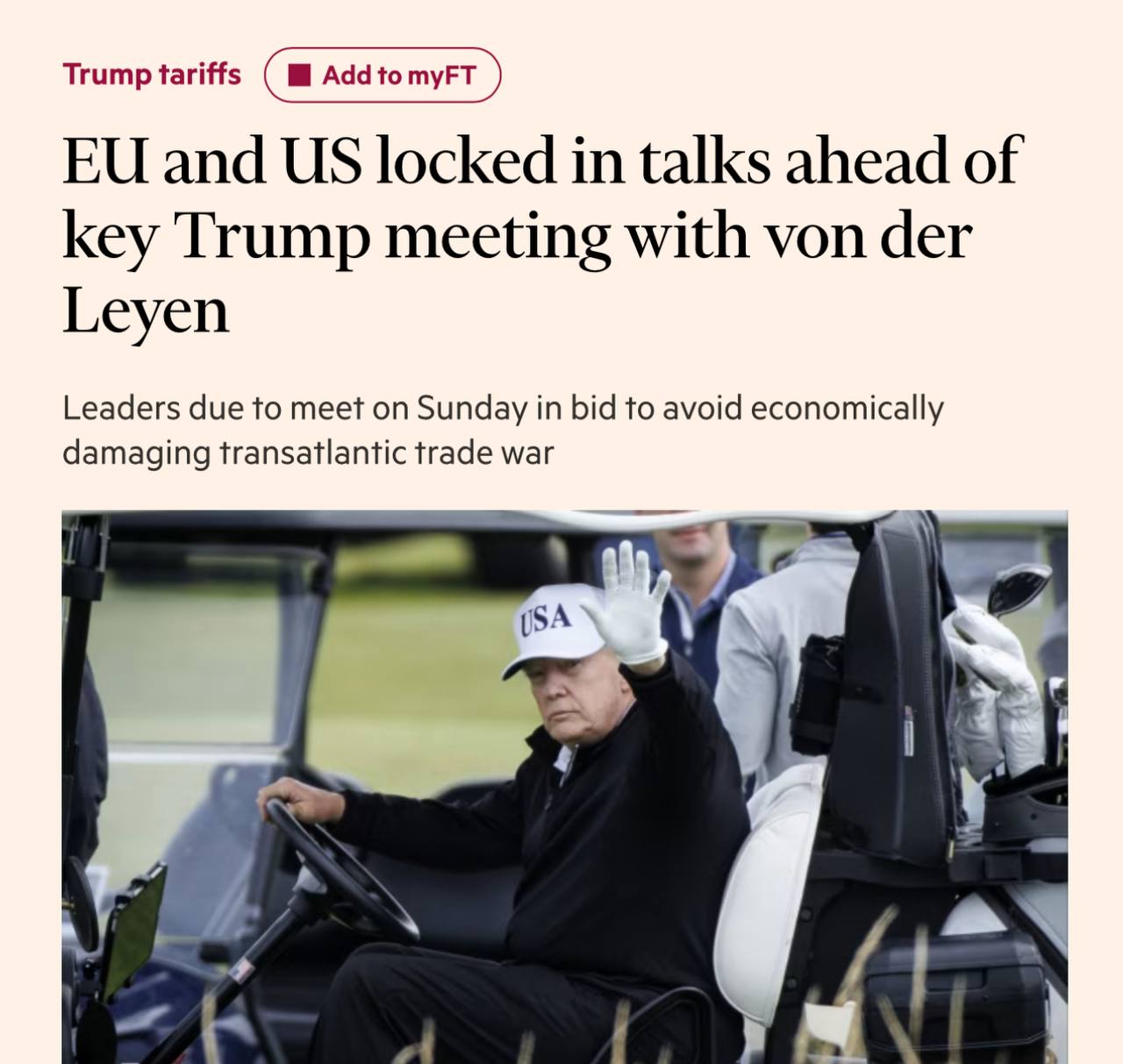
The failure to reach a deal could trigger a full-blown transatlantic trade war, with significant tariffs imposed by both sides, potentially harming global trade and economic growth. Tariffs can raise costs for businesses, disrupt supply chains, and lead to job losses, particularly affecting export-oriented economies in Europe. The ongoing threat of tariffs creates significant uncertainty for businesses, freezing investment decisions. While the EU has presented a united front in preparing retaliatory measures, internal pressure from member states could arise depending on how specific sectors are affected. Trade disputes can strain the broader political and security relationship between the U.S. and the EU, including cooperation on issues like Ukraine, climate, and technology regulation.
Potential Impact on EU Tech Law Enforcement

There are concerns that the enforcement of EU tech laws, like the DSA and DMA, could be influenced or delayed due to trade negotiations.